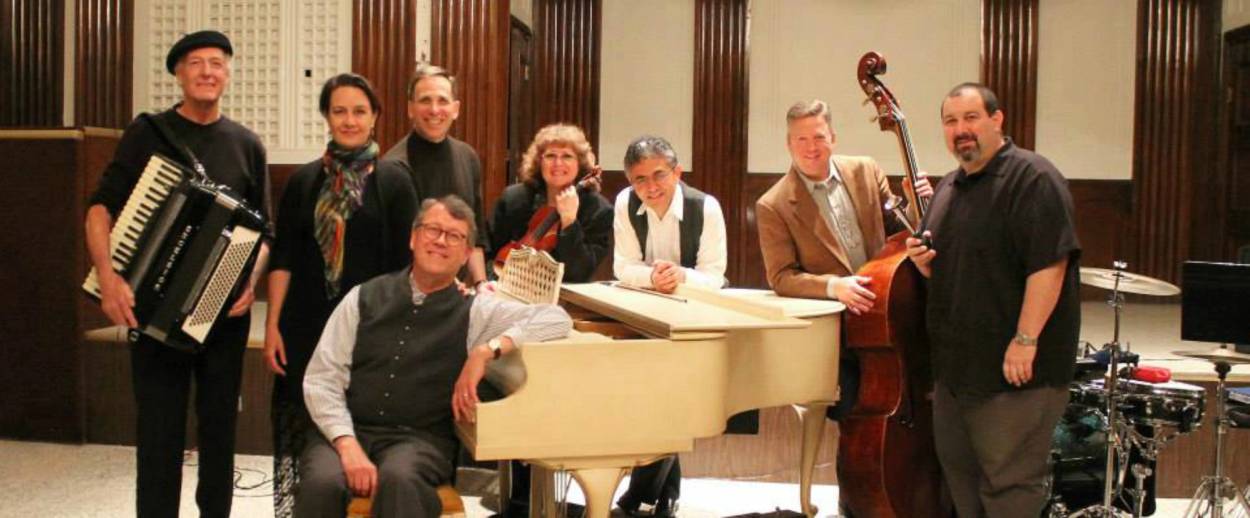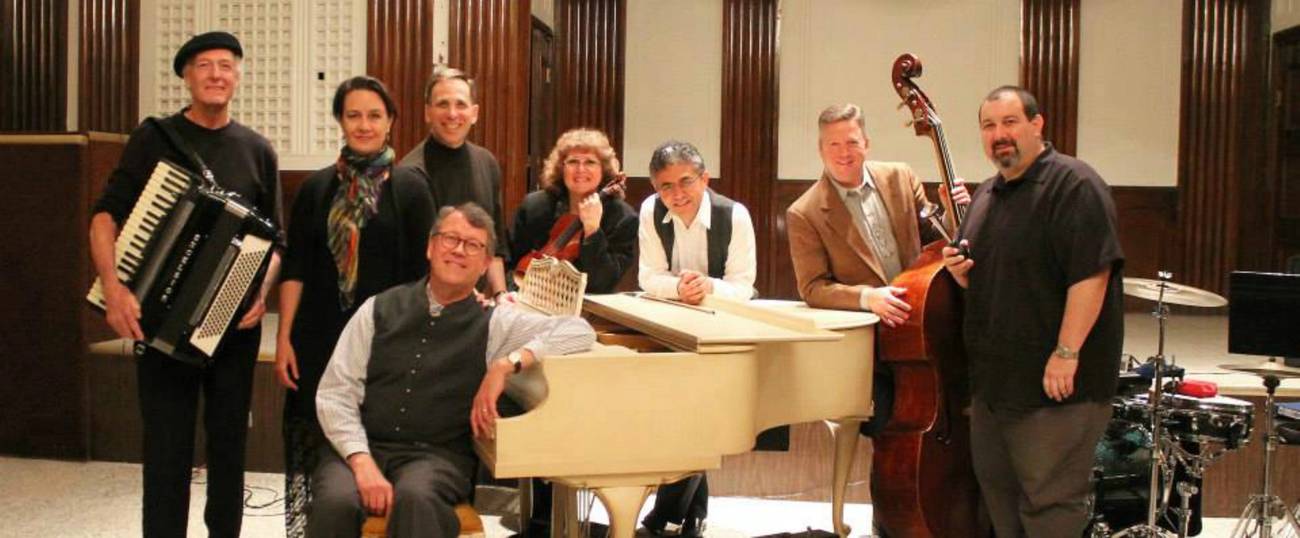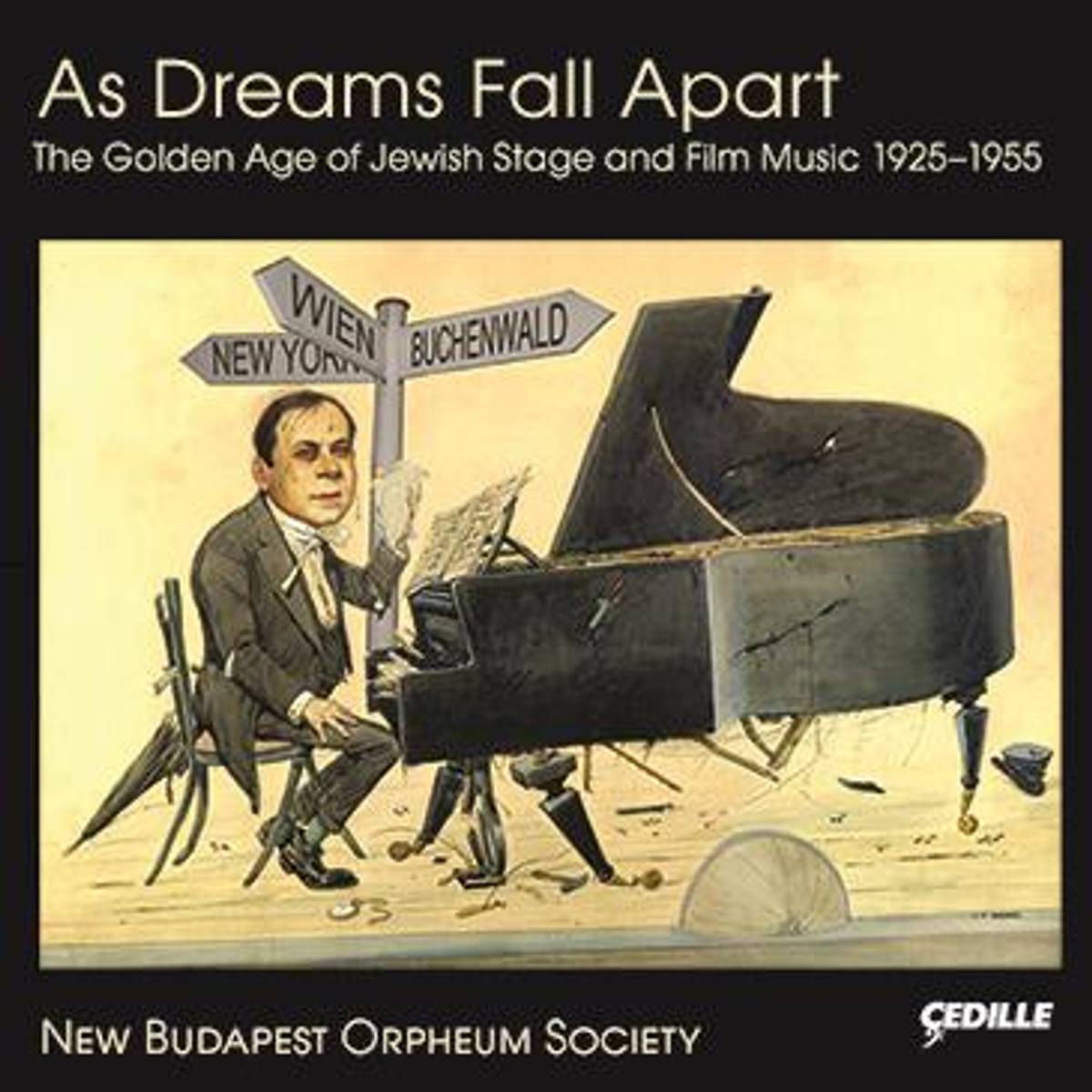Chicago Ensemble Earns Grammy Nomination for Album of Jewish Music From ‘Golden Age’
The New Budapest Orpheum Society’s record of Jewish stage and film music from 1925-1955 provides a window into Jewish artistry during tough times




War, exile, genocide, assimilation—these are heady themes for an album of cabaret music. But As Dreams Fall Apart: The Golden Age of Jewish Stage and Film Music 1925-1955 isn’t just any old cabaret album.
Last month, As Dreams Fall Apart, the third album by New Budapest Orpheum Society, an ensemble-in-residence at the University of Chicago, received a Grammy nomination for Best Classical Compendium (the award was first given in 2013), which is no small feat for an album of decades-old songs sung mostly in German and Yiddish.
“It’s a complete surprise,”said baritone Stewart Figa. “It’s fantastic. I don’t think there’s any other Yiddish material that’s up for a Grammy this year.”

The music in As Dreams Fall Apart, which spans the post-WWI era to the aftermath of the Holocaust, offers a fascinating glimpse into a time when Jews faced pogroms, the rise of Nazism, and integration into new secular cultures. The vast outpouring of Jewish art from this period is full of complexity and contradictions: artists embraced various contemporary forms—film, popular song, the novel—while remaining grounded in the traditions and traumas of der alter heym, the old world of Ashkenaz.
The album include performances of popular American Yiddish hits like “A Brivele Der Mamen” (“A Little Letter to Mama”), music from films like Billy Wilder’s A Foreign Affair, and even songs written in the Vilna ghetto, such as Avrom Brudno’s “Friling” (“Springtime”).
But there are more than old songs simply unearthed from the annals of musical history. As the extensive liner notes by the ensemble’s Artistic Director Philip Bohlman make clear, this is the work of a group of performers dedicated to reinterpreting a repertoire they love for a new generation. The ensemble members themselves bring a diverse set of styles to the material, incorporating influences from tango and jazz among others, and these are many moments where, as Bohlman puts it, “stylistic and geographical borders must be dismantled and crossed”—mirroring the millions of border-crossings undertaken by 20th century Jews in the diaspora.
“Jews’ contributions to German and Viennese culture parallel what happened in America,” Figa added. “George Gershwin, Irving Berlin, Hardol Arlen—we got that whole generation of great artists who helped make American culture. But in Europe, [Jewish culture] didn’t have a chance to flower… The madness of Nazism killed it, and that’s the world’s loss.”
Previous: A ‘Golden’ Revival—and Party to Boot
Related: ‘Go Down, Moses’: Engaging With My Complex Musical Heritage at Passover
How One Half-Yiddish, Half-English Song Connected Generations of My Family
Rose Kaplan is an intern at Tablet.